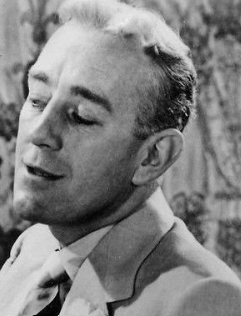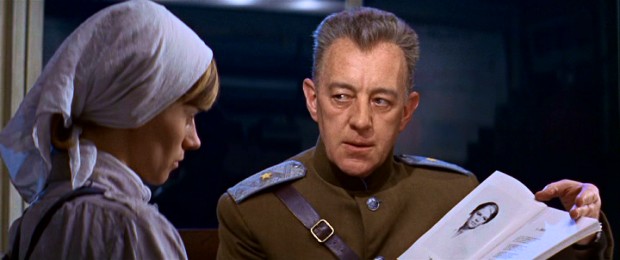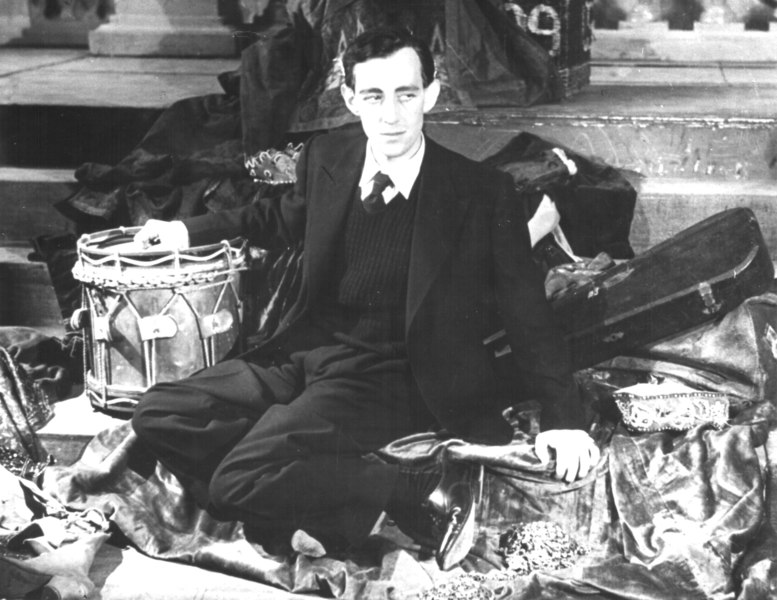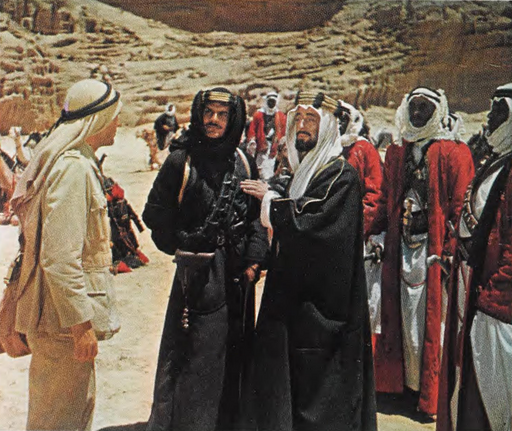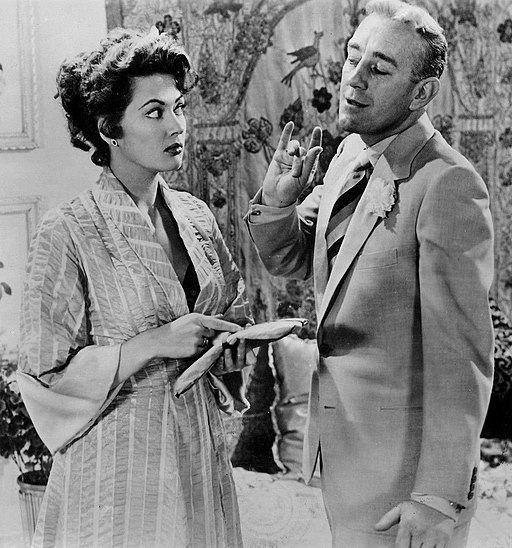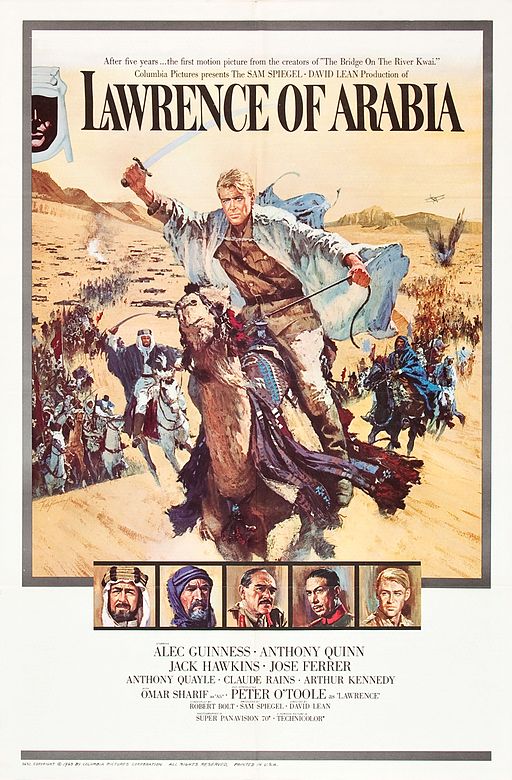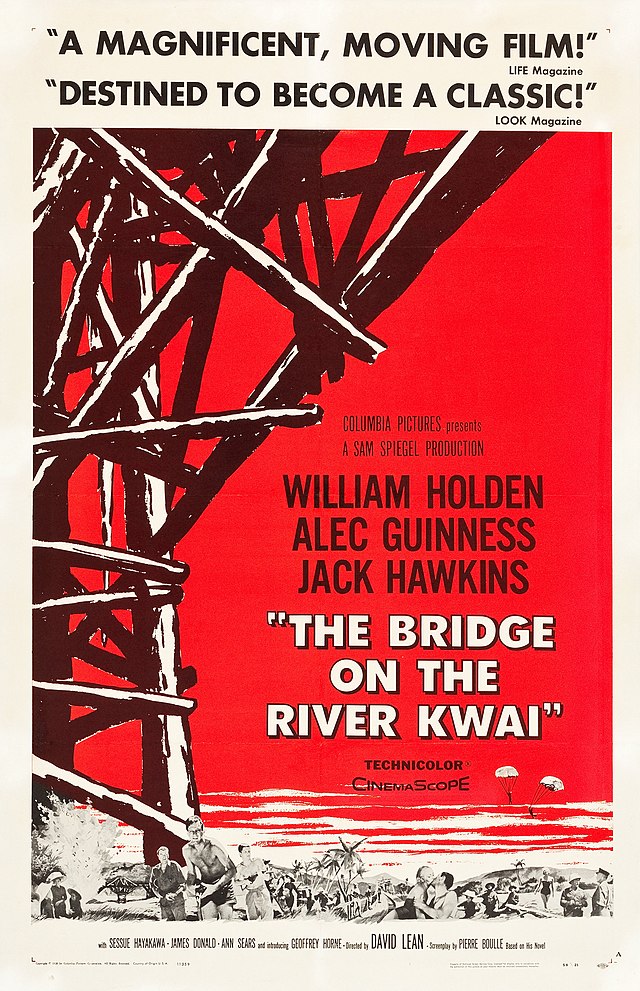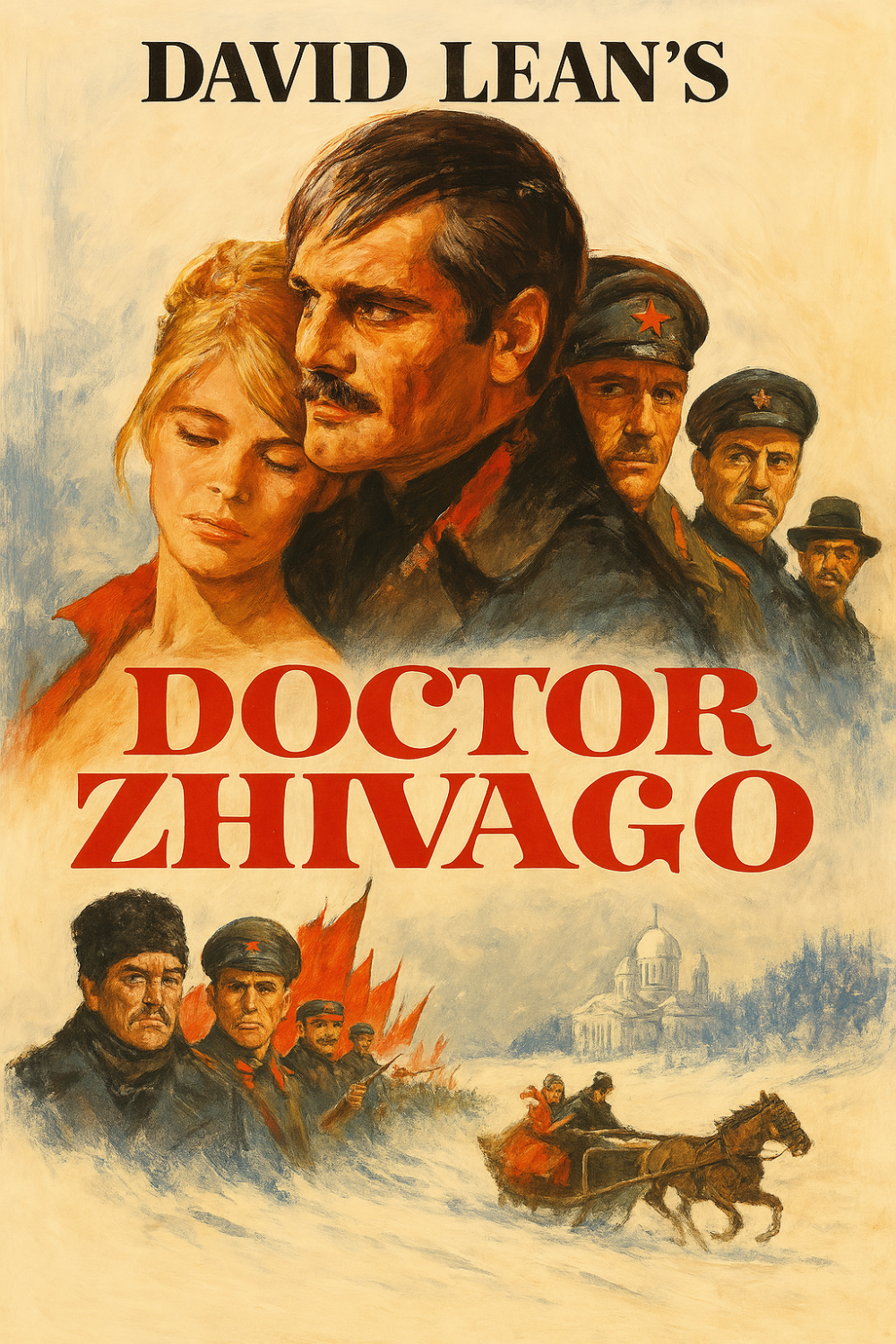Alec Guinness
back| Full Name | Alec Guinness de Cuffe |
| Stage Name | Alec Guinness |
| Born | April 2, 1914 |
| Birthplace | Paddington, London, England |
| Died | August 5, 2000 |
| Buried | Petersfield, Hampshire, England |
| Married to | Merula Salaman (1938–2000) |
| Children | Matthew Guinness |
| Notable films | Great Expectations (1946) - The Lavender Hill Mob (1951) - The Bridge on the River Kwai (1957) -Lawrence of Arabia (1962) - Doctor Zhivago (1965) - Star Wars (1977) |
Alec Guinness
The Chameleon of the Silver Screen
Alec Guinness, born on April 2, 1914, in Paddington, London, was a legendary British actor renowned for his versatility and mastery of character transformation. Starting his career on stage, Guinness gained acclaim at the Old Vic and on Broadway, showcasing his formidable theatrical talent.
His transition to film was marked by a notable performance in David Lean’s adaptation of "Great Expectations" (1946), where he played Herbert Pocket, setting the stage for a series of memorable film roles.
Guinness's collaboration with Lean continued, leading to iconic performances in "The Bridge on the River Kwai" (1957), for which he won an Academy Award, "Lawrence of Arabia" (1962), and "Doctor Zhivago" (1965). However, it was his role as Obi-Wan Kenobi in George Lucas’s "Star Wars" (1977) that brought him global fame, introducing him to a new generation of audiences.
Known for his intelligence, subtlety, and depth, Guinness was a master of both comedy and drama. His career spanned over six decades, during which he became one of the most respected actors of his generation.
Knighted by Queen Elizabeth II in 1959, Guinness's contributions to cinema and theatre were immense. He passed away on August 5, 2000, leaving behind a legacy characterized by diverse and impactful performances.
Related
Alec Guinness
Biography and Overview of his Movie Career
Alec Guinness was born in Paddington, London, and grew up in a modest, somewhat uncertain family background. He discovered acting in his teens and received a scholarship to the Fay Compton Studio of Dramatic Art.
Theatre Career
Guinness began his career on stage, quickly establishing himself as a versatile and accomplished actor. He worked extensively in the theatre, including performances with the Old Vic company and on Broadway.
Film Career
His film career took off post-World War II, with notable roles in British comedies and dramas. He gained acclaim for his ability to disappear into a variety of characters, often altering his appearance drastically.
Guinness's portrayal of multiple characters in "Kind Hearts and Coronets" and his role in "The Lavender Hill Mob" were particularly celebrated.
International Fame
He won an Academy Award for Best Actor for "The Bridge on the River Kwai," where he played Colonel Nicholson. This role cemented his reputation as a leading actor in international cinema.
Guinness was also known for his roles in epic films like "Lawrence of Arabia" and "Doctor Zhivago."
Later Career and 'Star Wars'
In his later years, Guinness reached a new generation of fans as Obi-Wan Kenobi in George Lucas's "Star Wars," a role that brought him a new level of fame and recognition.
Personal Life
Guinness was known for his private nature. He married Merula Salaman in 1938, and they remained together until his death. They had one son, Matthew.
Death and Legacy
Alec Guinness passed away on August 5, 2000. He is remembered as one of the most respected and versatile actors of his generation, with a career that spanned over six decades. His contribution to both stage and screen remains a benchmark for excellence in acting.Bovenkant formulier
Watch Alec Guinness winning the Oscar for Best Actor in 1958:
Analysis of the Acting Style of Alec Guinness:
Alec Guinness's acting style was renowned for its subtlety, versatility, and depth. He was one of the most respected actors of his generation, both on stage and in film.
Mastery of Disguise and Transformation
Guinness was famous for his ability to completely transform into his characters. In films like "Kind Hearts and Coronets," he played multiple roles with distinct personalities, appearances, and mannerisms, showcasing his extraordinary range and skill in character transformation.
Understated Performance
Unlike many actors of his era, Guinness's performances were often understated yet deeply impactful. He had a talent for conveying complex emotions with minimalistic expression, allowing audiences to sense the depth of his characters' inner lives.
Nuanced Characterization
Each character he portrayed was fully realized and nuanced. Guinness had a gift for bringing out the subtle quirks and idiosyncrasies of his characters, making them feel authentic and relatable.
Versatility
His filmography covered a wide range of genres, from comedy to drama to epic historical films. This versatility allowed him to adapt his style to suit the tone and requirements of each film seamlessly.
Elegant Voice and Diction
Guinness's voice was another key element of his style. He used it effectively to add layers to his characters, often altering his vocal tone and accent to suit different roles.
Presence and Charisma
Guinness had a strong screen presence and natural charisma that drew viewers into his performances. Even in roles where he played more subdued characters, he had the ability to command attention.
Classical Training and Theatrical Influence
Trained in classical theatre, Guinness brought a sense of discipline and precision to his film roles. His theatrical background was evident in his clear enunciation and controlled physicality.
In summary, Alec Guinness's acting style was characterized by its transformational quality, subtlety, depth, and versatility. He was a master at creating distinct, memorable characters, contributing significantly to the films he was a part of and leaving a lasting impact on the acting profession.
Notable Movies featuring Alec Guinness:
1946:
- "Great Expectations": Guinness played Herbert Pocket in David Lean's adaptation of Dickens' classic.
1948:
- "Oliver Twist": He portrayed Fagin in another acclaimed Lean adaptation of Dickens.
1949:
- "Kind Hearts and Coronets": Guinness famously played eight different characters in this dark comedy.
1951:
- "The Lavender Hill Mob": A comedy where Guinness starred as a mild-mannered bank clerk who masterminds a gold bullion heist.
1955:
- "The Ladykillers": A comedy about a gang of criminals who rent a room from an old lady.
1957:
- "The Bridge on the River Kwai": Guinness played Colonel Nicholson in this WWII epic, for which he won an Oscar.
1958:
- "The Horse's Mouth": Guinness starred as Gulley Jimson, an eccentric painter.
1962:
- "Lawrence of Arabia": He played Prince Faisal in David Lean's epic.
1965:
- "Doctor Zhivago": Guinness appeared as General Yevgraf Zhivago in another Lean masterpiece.
1970:
- "Cromwell": Guinness portrayed King Charles I in this historical drama.
1977:
- "Star Wars: Episode IV – A New Hope": He played Obi-Wan Kenobi, a role that introduced him to a new generation.
1980:
- "The Empire Strikes Back": Guinness reprised his role as Obi-Wan Kenobi.
1983:
- "Return of the Jedi": He appeared again as Obi-Wan Kenobi.
1988:
- "A Handful of Dust": Guinness had a supporting role in this British drama.
1991:
- "Kafka": In one of his final film roles, Guinness played the Chief Clerk.
Awards and Nominations:
Academy Awards:
- Guinness won the Academy Award for Best Actor for his role in "The Bridge on the River Kwai" (1957).
- He received a nomination for Best Supporting Actor for "Star Wars" (1977).
- In 1980, he was honored with an Academy Honorary Award for his career achievements.
BAFTA Awards:
- Guinness won the BAFTA Award for Best British Actor for "The Ladykillers" (1955) and "The Horse's Mouth" (1959).
- He received multiple BAFTA nominations throughout his career for both film and television performances.
Golden Globe Awards:
- He won the Golden Globe for Best Actor for "The Bridge on the River Kwai."
Emmy Awards:
- Guinness received an Emmy Award nomination for his role in "Tinker Tailor Soldier Spy" (1980).
Tony Awards:
- Although primarily known for his film work, Guinness was also an accomplished stage actor and received a Tony Award nomination for his Broadway performance in "Dylan" (1964).
Other Honors:
- Guinness was knighted by Queen Elizabeth II in 1959 for his services to the arts.
- He received an Honorary Golden Bear at the Berlin International Film Festival in 1988.
- In addition to these major awards, Guinness was recognized with several other honors and accolades throughout his career for his contributions to both film and theater.
Remarkable Quotes from Alec Guinness:
On Acting:
"Essentially, acting is like painting pictures on bathroom tissues. It's a transient medium that rarely survives its generation."
Reflecting on His Career:
"I don't know what else I could do but pretend to be an actor."
Regarding Fame and Stardom:
"Stardom is just an uneasy seat on top of a slippery pole."
On His Approach to Roles:
"I always believe it's better to have 30 small parts in great films than one lead part in a lousy one."
Regarding Film and Theater:
"In the theater, the actor is given immediate feedback. In film, you're often the last person to know what sort of job you've done."
On His Personal Dislike for 'Star Wars':
"I shrivel up every time someone mentions 'Star Wars' to me."
His Take on Life:
"An actor is totally vulnerable. His total personality is exposed to critical judgment - his intellect, his bearing, his diction, his whole appearance. In short, his ego."
Reflecting on Life:
"I prefer the gloomy part of the year, when nature herself is going through a period of reflection."
Alec Guinness and his Disdain for his Role in “Star Wars”:
Alec Guinness's feelings towards his role in "Star Wars" are quite well-documented and complex. While he was critically acclaimed for his portrayal of Obi-Wan Kenobi, Guinness himself had a less than favorable view of the film and his involvement in it. Here are some key points regarding his sentiments:
Professional Disdain for the Role
Guinness often expressed disdain for the film, feeling that the dialogue was poor and the plot lines were unsophisticated. He reportedly found the experience of working on "Star Wars" frustrating and considered the movie's dialogue "rubbish."
Concerns About Typecasting
Despite a long and varied career, Guinness was concerned about being remembered only for his role in "Star Wars." He was a classically trained actor who had performed Shakespeare and starred in numerous critically acclaimed films, and he feared that his association with a commercial blockbuster might overshadow his other achievements.
Fan Interactions
Guinness was known to be uncomfortable with the intense fanfare associated with the "Star Wars" franchise. He once told a story of how he asked a young fan to promise never to watch "Star Wars" again in exchange for his autograph.
Financial Compensation
Despite his personal feelings about the film, Guinness made a shrewd financial decision by negotiating a deal for two percent of the gross royalties paid to George Lucas, which turned out to be extremely lucrative due to the film's phenomenal success.
Reflections in Autobiography
In his autobiography, Guinness recounted his experiences on the set of "Star Wars" and his interactions with fans, often highlighting his mixed feelings about the film’s impact on his life and career.
The Significance of Alec Guinness’ part in “Great Expectations”:
Alec Guinness's role in "Great Expectations" (1946), directed by David Lean, was a pivotal point in his career for several reasons:
Transition to Film Stardom
Prior to "Great Expectations," Guinness was primarily known for his work in theatre. His portrayal of Herbert Pocket in this classic Charles Dickens adaptation marked one of his first significant film roles and transitioned him into a film actor.
Establishing a Collaborative Relationship with David Lean
"Great Expectations" was the beginning of Guinness's fruitful collaboration with director David Lean, a partnership that would significantly shape his film career. Lean's ability to harness Guinness's subtle acting style was evident in this film and would be further developed in their later collaborations.
Critical Acclaim
Guinness's performance was widely praised for its charm and wit. His portrayal of Herbert Pocket was both memorable and engaging, showcasing his ability to bring depth and nuance to a supporting character.
Type of Characters
The role highlighted Guinness's talent for playing gentle, understated characters, setting a pattern for some of his future roles. It exemplified his skill in bringing literary characters to life with authenticity and depth.
Launching Pad for Major Roles
The success of "Great Expectations" and Guinness's performance in it helped to establish him as a versatile and talented actor in the film industry. It paved the way for more significant roles in both British and international cinema.
In summary, Alec Guinness's role in "Great Expectations" was a key milestone in his transition from theatre to film and helped establish him as a distinguished and versatile actor, laying the groundwork for a distinguished career in cinema.
Alec Guinness Filmography:
1946:
- Great Expectations
1948:
- Oliver Twist
1949:
- Kind Hearts and Coronets
- A Run for Your Money
1950:
- Last Holiday
- The Mudlark
1951:
- The Lavender Hill Mob
- The Man in the White Suit
1952:
- The Card
1953:
- The Captain's Paradise
- Malta Story
1954:
- Father Brown
1955:
- The Prisoner
- The Ladykillers
- To Paris with Love
1956:
- The Swan
- The Man Who Never Was
1957:
- The Bridge on the River Kwai
1958:
- The Horse's Mouth
1959:
- Our Man in Havana
1960:
- Tunes of Glory
1961:
- A Majority of One
1962:
- Lawrence of Arabia
- H.M.S. Defiant
1964:
- The Fall of the Roman Empire
- Damn the Defiant!
1965:
- Situation Hopeless... But Not Serious
- Doctor Zhivago
1966:
- Hotel Paradiso
1967:
- The Comedians
1969:
- Twelfth Night (TV Movie)
- The Royal Hunt of the Sun
- Scrooge
1970:
- Cromwell
- Brother Sun, Sister Moon
1972:
- Hitler: The Last Ten Days
1973:
- The Blockhouse
1976:
- Murder by Death
1977:
- Star Wars: Episode IV - A New Hope
1979:
- Tinker Tailor Soldier Spy (TV Mini-Series)
1980:
- Little Lord Fauntleroy
- Raise the Titanic
- The Empire Strikes Back
1982:
- Smiley's People (TV Mini-Series)
1983:
- Lovesick
- Return of the Jedi
1984:
- A Passage to India
1988:
- Little Dorrit
- A Handful of Dust
1991:
- Kafka
1994:
- Mute Witness

